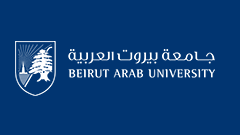Abstract
This article demonstrates how forensic linguistics is a necessary means to most of the pathological fields of life. The theme of this article revolves around forensic linguistics and its applicability in academic research. Forensic linguistics is the systematic study of language latitudes in particular contexts for forensic purposes. As a new academic discipline, it holds the role of developing methodical linguistic standards in order to enhance not only English language, but also universal language. It provides language with aspects that help in solving linguistic problems. It also introduces language as a collective medium for better communication. Being a subfield of linguistics, it applies systematic theories on clusters of language preparing the acquired results to be utilized and accepted in the official, legal and judicial fields. This article formulates the pertinent difference between linguistics and systematic forensic linguistics, which extends the theoretical, experimental, informative and procedural scopes of academic research. The comprehensive purpose of this article is to appreciate forensic linguistics as an applied theory through examining its role and effect, and through identifying it as a young, but strong, cross-disciplinary generic style which widens the scope of linguistics in academic research methodology. Forensic linguistics involves more than one field of linguistics while investigating a certain word-based piece of evidence. Forensic linguistics banks on academic criticism, as the best research methodology in research engagements, which leads to achieve explanations of the foremost linguistic questions in the most controversial forensic cases. Applied forensic linguistics can be counted as dimensional since it extends the employment of investigative linguistic procedures, e.g. meta-linguistics and paralinguistic. Forensic linguistics contributes to the well-being of the modern societies as technology has invaded every aspect of life. Incessant technological advances are responding favorably to the linguistic needs and harmonizing with the academic fields. Technology, as such, is offering larger patterns of inquiry and comprehensive meadows of choice in the varied fields of forensic linguistics. Day after day, technology is enhancing the endeavors of linguistic application and helping in resolving unresolved cases and even, gradually, miscarragies of justice. There are many fissures which are not enclosed yet and still have to be scholastically investigated and systematically approached by means of experimentation and application through academic research.
Keywords
Forensic linguistics, legal and judicial fields, systematic forensic linguistics, metalinguistics, and paralinguistics.
Recommended Citation
Sakakini, adel
(2020)
"FORENSIC LINGUISTICS: AN APPLIED THEORY,"
BAU Journal - Society, Culture and Human Behavior: Vol. 1:
Iss.
2, Article 2.
DOI: https://doi.org/10.54729/2789-8296.1022

